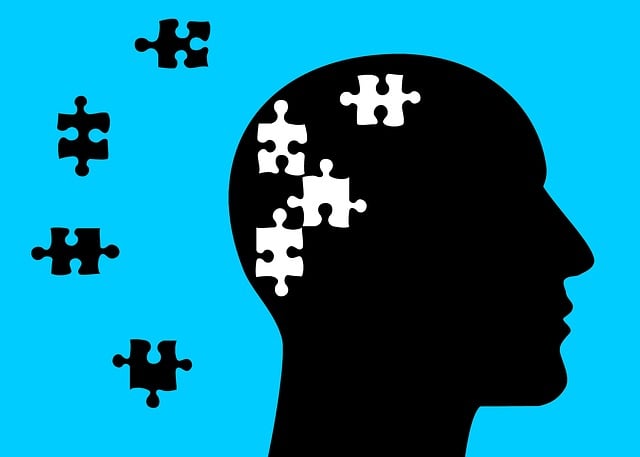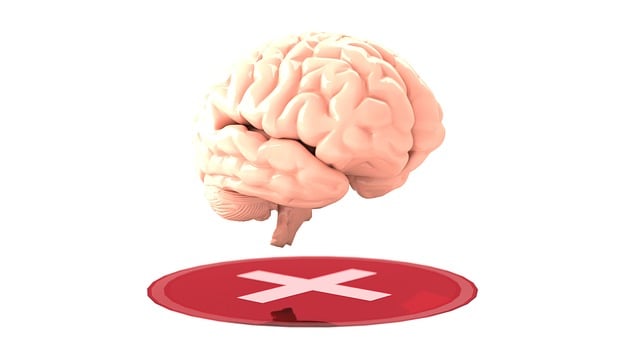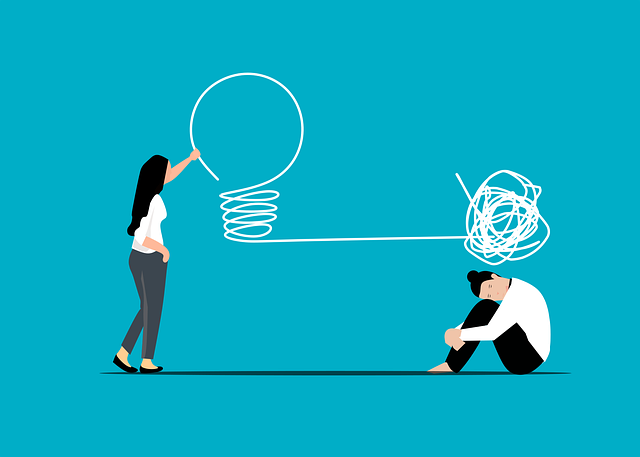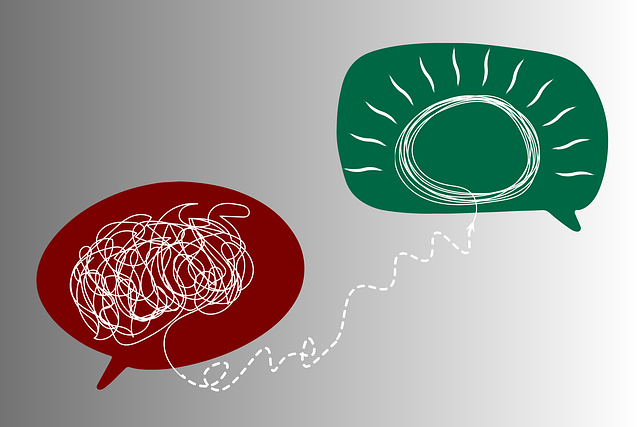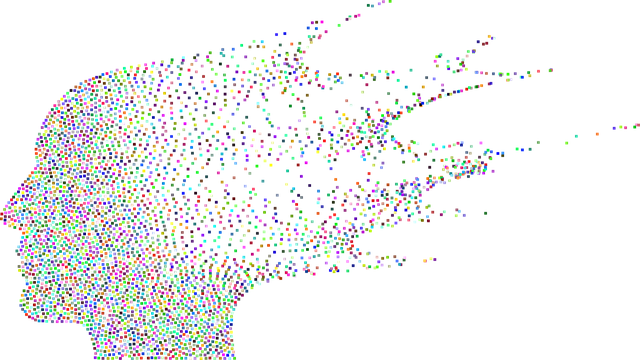Mental wellness group dynamics are key to successful facilitation in settings like Boulder Couples Communication Issues Therapy (BCCIT). Facilitators create safe, inclusive spaces through cultural competency training, understanding diverse communication styles and coping mechanisms. Public awareness campaigns normalize mental health conversations, fostering openness and community support. Effective communication techniques include active listening, mindfulness practices, and stigma reduction through respectful language. Setting clear boundaries, promoting positive thinking, and gratitude exercises enhance group dynamics. BCCIT offers a supportive environment with diverse perspectives, utilizing mental health education and non-violent communication for emotional intelligence development. Measuring outcomes through surveys and focus groups ensures program success, with burnout prevention and technology-facilitated remote sessions providing continuous care.
In today’s fast-paced world, mental wellness group facilitation plays a crucial role in supporting individuals navigating personal challenges. This article delves into essential techniques for facilitators, exploring various aspects of group dynamics, communication strategies, and environmental creation. From understanding Boulder couples’ communication issues in therapy to measuring group outcomes, these tactics foster safe spaces. Learn effective methods for facilitating supportive environments, addressing specific challenges, and enhancing therapeutic experiences for all participants.
- Understanding Mental Wellness Group Dynamics
- Effective Communication Strategies for Facilitators
- Techniques to Foster Safe and Supportive Environments
- Addressing Couples' Communication Issues in a Group Setting
- Measuring and Enhancing Group Therapy Outcomes
Understanding Mental Wellness Group Dynamics

Understanding Mental wellness group dynamics is a cornerstone for effective facilitation, especially in settings like Boulder Couples Communication Issues Therapy. Groups create a unique environment where individuals can benefit from shared experiences and peer support. As a facilitator, recognizing and navigating these dynamics is key to fostering a safe, inclusive space for all participants. Each member brings their own story, perspective, and set of challenges, creating a complex yet powerful tapestry of human connection.
In the context of Boulder Couples Communication Issues Therapy, understanding cultural competency, particularly through Healthcare Provider Cultural Competency Training, becomes even more critical. Groups can offer a forum to explore diverse communication styles, stress reduction methods, and coping mechanisms. Public Awareness Campaigns Development can also play a role in normalizing conversations around mental health, encouraging openness, and building community support—all essential elements for successful group facilitation and improved individual well-being.
Effective Communication Strategies for Facilitators

Effective communication is a cornerstone for facilitators leading mental wellness groups, especially when addressing sensitive topics like Boulder Couples Communication Issues Therapy. Facilitators must cultivate an environment where every participant feels heard and respected. Active listening, where the facilitator reflects back what they’ve understood to ensure clarity and empathy, can significantly enhance group dynamics. This technique not only promotes open dialogue but also helps in identifying underlying emotional triggers.
Moreover, incorporating practices like Mindfulness Meditation into group sessions allows facilitators to guide participants through focused awareness exercises. Such exercises encourage individuals to express their feelings without judgment, fostering a safe space for conflict resolution techniques to be learned and practiced. Mental Illness Stigma Reduction Efforts are further supported when facilitators model respectful communication, ensuring that every conversation is conducted with kindness and understanding, regardless of the topic.
Techniques to Foster Safe and Supportive Environments

Creating a safe and supportive environment is paramount for effective mental wellness group facilitation, especially when addressing sensitive issues like Boulder Couples Communication Issues Therapy. Facilitators should prioritize establishing clear boundaries and ground rules from the outset to ensure every participant feels respected and heard. This involves setting expectations regarding confidentiality, active listening, non-judgmental attitudes, and fostering an atmosphere where vulnerability is encouraged without fear of repercussions.
Mind Over Matter Principles can significantly enhance these efforts. By promoting positive thinking and a growth mindset, facilitators encourage participants to view challenges as opportunities for personal development rather than insurmountable barriers. This shift in perspective encourages open dialogue, fosters resilience, and cultivates a supportive community that celebrates each member’s mental wellness journey. Incorporating exercises that emphasize gratitude, mindfulness, and constructive feedback mechanisms further reinforces the positive thinking aspect, creating a nurturing environment conducive to healing and growth.
Addressing Couples' Communication Issues in a Group Setting

In a group setting, addressing Boulder couples’ communication issues can be highly effective due to the supportive environment and diverse perspectives. Facilitators often employ techniques from mental health education programs designed to foster open dialogue and enhance emotional intelligence. By encouraging active listening, empathy, and non-violent communication, groups can help couples navigate challenging conversations more constructively.
This dynamic is further amplified through social skills training, where participants learn to manage conflict, express needs, and appreciate each other’s viewpoints. The group setting allows for role-playing scenarios that mimic real-life interactions, providing a safe space for practicing healthier communication patterns. This hands-on approach not only benefits the couple but also equips them with valuable tools for improving mental wellness in their relationship.
Measuring and Enhancing Group Therapy Outcomes

Measuring group therapy outcomes is an essential aspect of ensuring effective mental wellness support. Facilitators in Boulder Couples Communication Issues Therapy can employ various qualitative and quantitative methods to assess the impact of their sessions. Pre- and post-session surveys, for instance, allow participants to reflect on their emotional states, communication skills, and overall satisfaction. By comparing these responses, facilitators can gauge progress and identify areas that require further attention. Additionally, structured interviews or focus groups provide deeper insights into individual experiences, fostering a more comprehensive understanding of group dynamics and therapeutic outcomes.
Enhancing these results involves integrating strategies like burnout prevention techniques for professionals. Given the demanding nature of mental health work, risk management planning is vital to maintain facilitators’ well-being and prevent professional exhaustion. Encouraging open communication, peer support, and setting realistic goals can create a sustainable environment. Moreover, utilizing technology for remote sessions or online resources enables accessible and continuous mental wellness care, benefiting both professionals and clients in managing and improving their therapeutic journeys.
Group facilitation techniques for mental wellness are powerful tools that can significantly enhance therapeutic outcomes. By understanding group dynamics, employing effective communication strategies, and creating safe spaces, facilitators can foster profound connections and support among participants. Addressing couples’ communication issues in a group setting offers unique benefits, especially in Boulder, where diverse communities seek holistic therapies. Measuring and enhancing group therapy outcomes is essential for ensuring the effectiveness of these sessions, ultimately revolutionizing mental wellness support in our digital era.
